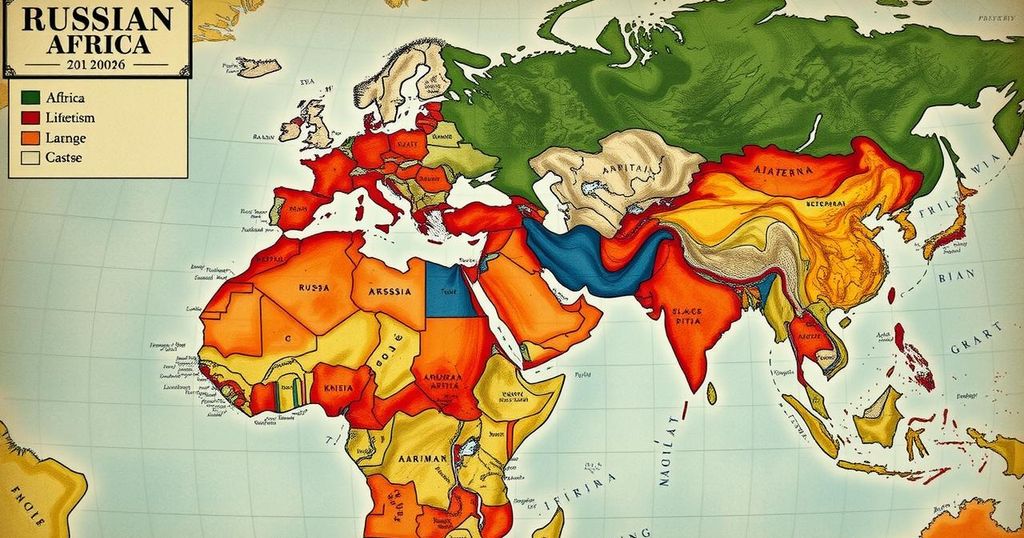The Fragile Illusion of Russian Power in Africa
Russia’s attempts to become a dominant force in Africa are fraught with challenges. The Wagner Group’s involvement in multiple African countries has led to increased violence and instability, undermining Moscow’s propaganda of being a supportive partner. With overextended operations and economic constraints from sanctions, Russia’s standing as a great power in Africa is increasingly dubious, potentially ceding ground to other nations like Turkey.
In recent years, Russia has aimed to expand its influence in Africa, presenting itself as a supportive partner for various regimes. However, evidence points to the fact that Moscow’s actual capabilities and intentions may not align with its ambitious narratives. The Kremlin’s mercenary operations, particularly those conducted by the Wagner Group, have faced significant challenges and setbacks in several African nations, including Mali and Burkina Faso. Despite initially capitalizing on anti-Western sentiments, Russia’s strategy seems increasingly strained, with local populations suffering higher violence and instability. The reliance on mercenaries who are both overstretched and poorly equipped further undermines Moscow’s claims of being an emerging great power in the region.
The echoes of previous Soviet support for anti-colonial movements are employed by Russia as part of its propaganda efforts to connect with African nations, but the contemporary reality paints a different picture. The Kremlin is often implicated in human rights violations, including reported atrocities against civilians, thereby eroding its claim of being a benevolent partner. The complications regarding its military endeavors in Syria only exacerbate its situation in Africa, as observed with the reported evacuation of forces and diminishing military focus.
Furthermore, as the economic sanctions imposed on Russia due to its actions in Ukraine limit its financial resources, the country’s ability to offer substantial aid or investment to African states has dwindled. Consequently, the anticipated benefits from collaboration appear negligible compared to the potential gains offered by Western nations. Overall, Russia’s power in Africa is not as formidable as its propaganda suggests, raising concerns about its long-term sustainability and genuine commitment to African partners.
Moscow has recently sought to establish itself as a crucial player in Africa, leveraging anti-Western sentiments to extend its influence and support authoritarian regimes. Efforts included deploying mercenaries, particularly through the Wagner Group, to provide military assistance in exchange for lucrative exploitation of resources. However, the actual effectiveness of these operations has been called into question, especially given the rising violence against civilians and the complications involved in sustaining such engagements amid Russia’s ongoing military commitments in Ukraine and Syria. The apparent disconnect between Russia’s intended narratives and the on-ground realities reveals the limitations of its power projection in Africa.
In conclusion, while Russia has strategically sought to position itself as a vital ally to various African regimes, the failures in its military and mercenary operations reveal a much weaker reality. The Kremlin’s influence is arguably tethered to a precarious balance of propaganda, economic limitations, and the negative consequences of its military actions. As the political landscape continues to evolve, particularly following internal upheavals such as the Prigozhin incident, Moscow’s grip in Africa appears increasingly tenuous. The narrative of Russia as a great power in Africa is thus critiqued and challenged by tangible setbacks and emerging preferences among local governments for alternative partnerships.
Original Source: foreignpolicy.com




Post Comment